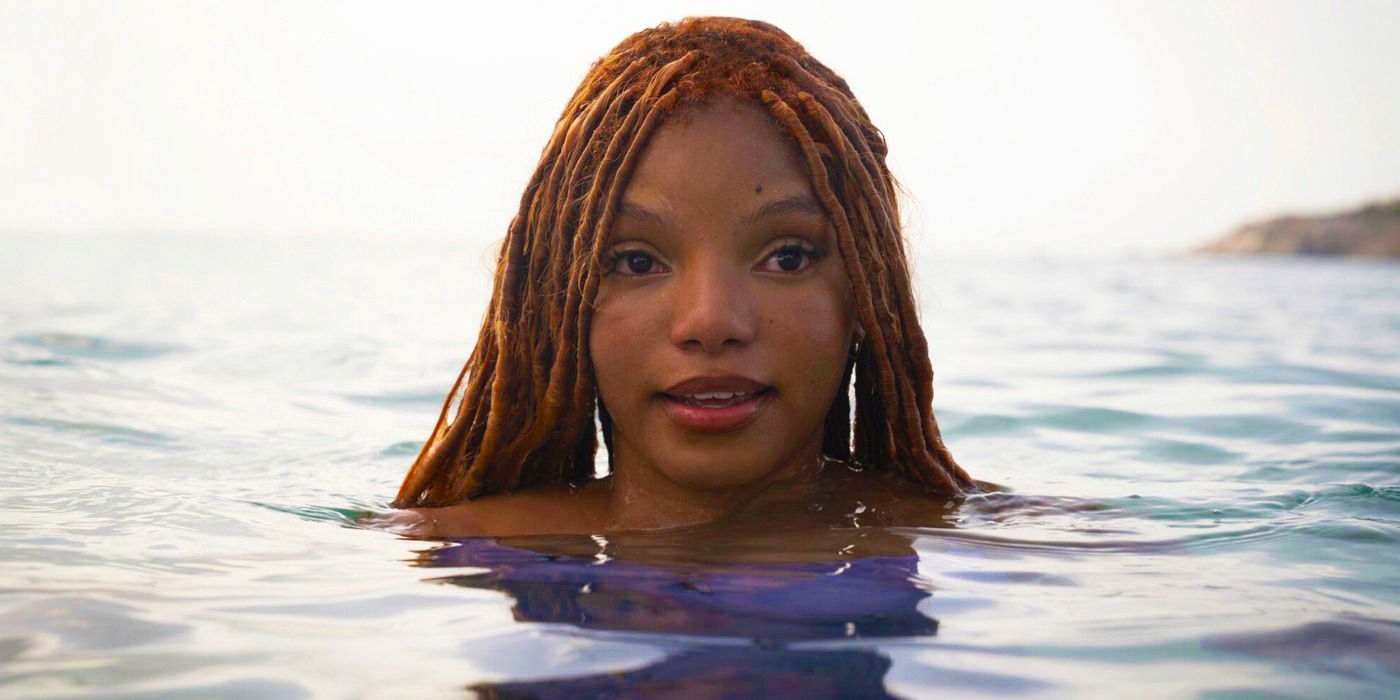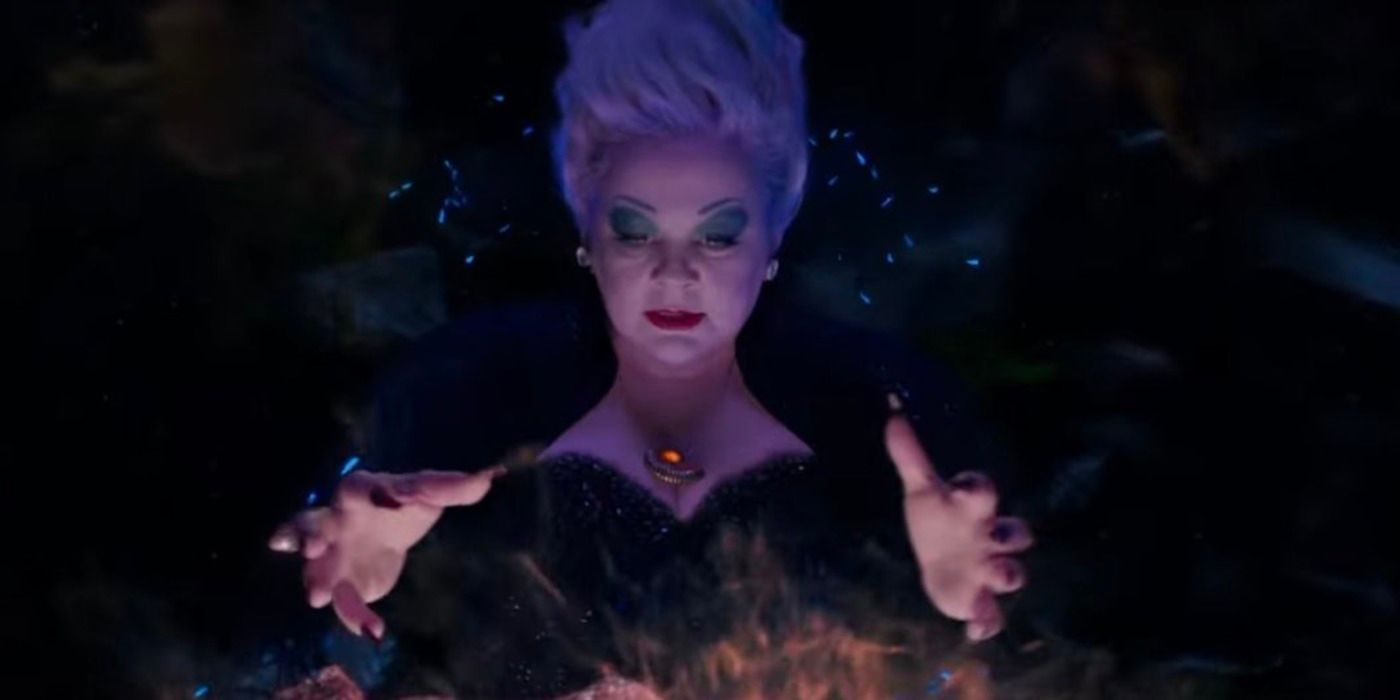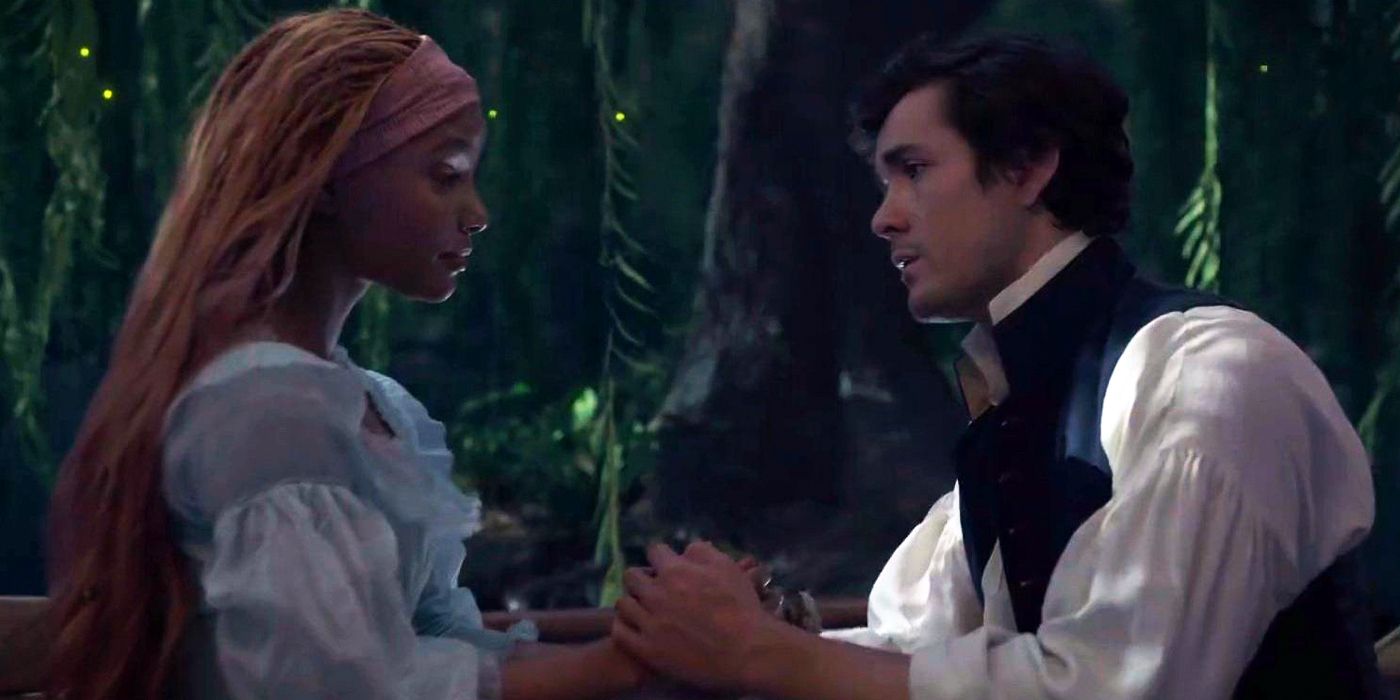This year, Disney is celebrating its 100th anniversary, and from the earliest Mickey shorts to the gargantuan company that they’ve become in the last century, one thing ties together Disney at its best: magic. For many of us, Disney films are the first place we felt this magic in film, and it’s this tenet that is key to Disney at its finest. Which is what has made Disney’s recent string of live-action remakes of their animated classics such a curious choice. While there have certainly been solid live-action films that have come out of this (last month’s Peter Pan & Wendy stands as one of the best), the question that ultimately comes up when watching any of these films is: why would I watch this instead of the original? Even when these films are decent, they’re often missing the magic that the originals inherently had. Why watch animated lions made to look real when you could watch The Lion King? Who needed to see an attempt at a realistic Pinocchio?
Disney’s latest live-action remake, The Little Mermaid, is one of their most daring projects so far. Not only is this a childhood favorite for so many, often considered one of the best animated films of all time, but it’s also a film that helped usher in the Disney Renaissance of the late 80s-early 90s. But even more important, The Little Mermaid, by design, is a film that needs that magic to work, as a story that brings the ocean to life with colorful characters and some of the best musical numbers in Disney history. Thankfully, The Little Mermaid is one of the rare Disney remakes that manages to bring this magic to live-action. This Little Mermaid understandably can’t match the levels of the original, but it does far better than most.
Halle Bailey stars in this adaptation as Ariel, a mermaid who—much to the chagrin of her father King Triton (Javier Bardem)—longs to be part of the human world. When she saves Prince Eric (Jonah Hauer-King) from drowning, she becomes even more enamored with the world above the sea. Despite her father forbidding her fascination with humans, Ariel finds help in the sea witch Ursula (Melissa McCarthy), who makes a deal with her to exchange her lovely voice for human legs in order to go to the land and get Prince Eric to fall in love with her. If Ariel can’t get Eric to fall in love with her and give her true love’s kiss in three days, her life will be in Ursula’s hands, which will put Triton and all of the underwater world in peril.
A Welcome Update to a Classic Story
For a little more than a decade, director Rob Marshall has primarily worked for Disney, sometimes nailing that magic and sometimes not. 2011’s Pirates of the Caribbean: On Stranger Tides was an odd match for Marshall, and that could be felt throughout that fourth installment, while 2014’s Into the Woods had fun playing with the tropes of Disney stories, yet without the enchantment that made those stories so interesting to begin with. However, Marshall has gotten better at figuring out what these stories need. 2018’s Mary Poppins Returns—like The Little Mermaid—matches the tone this follow-up needs and provides the joy of the original, even if it can’t quite reach the highs of the first film. Mary Poppins Returns and The Little Mermaid (both also written by David Magee) are both similarly admirable updates that find a way to bring these stories to a new audience with that magic intact.
But another key ingredient that has been present in all the best of these live-action remakes is updating elements that are smart additions that flesh out this story and explore ideas that the original wasn’t able to in its abbreviated runtime. Cinderella dove into why Lady Tremaine was so disdainful towards Cinderella, while Maleficent showed the dark history of the title character that led her down the path we saw in Sleeping Beauty. The Little Mermaid also excels at expanding this story is thoughtful and interesting ways that fans of the original will appreciate. For example, Prince Eric is more than just a pretty face—he’s also someone who also feels out of place in his current situation, searching the seas for something more, and giving Ariel something to connect to other than looks. This especially matters in the second half of the film as we watch Ariel and Eric get to know each other. As they begin to fall for each other, this begins to feel more like two characters falling in love, as opposed to the one-dimensional love that we saw in the animated film.
The Little Mermaid Expands and Explores the World Further
It’s this fleshing out of the entire world that makes The Little Mermaid feel worthwhile, and again, while it can’t necessarily match the greatness of the animated original, it’s moments like these that make it hard to not appreciate that this film exists. Magee’s script takes its time to make these all feel like fully-realized characters, each with a history and agency that the animated film simply didn’t have time for.
Thankfully, The Little Mermaid has an excellent cast that excels at bringing this world to life. Bailey does a tremendous job as Ariel, and her version of “Part of Your World” is a showstopper. McCarthy is also a perfect choice as Ursula, matching the wit and darkness that made her one of the great Disney villains. Daveed Diggs, Jacob Tremblay, and Awkwafina are also quite good as Sebastian, Flounder, and Scuttle, and while these characters might’ve looked strange in still images from the film, in action, there’s nothing strange about them. And Bardem also finds the right tone with Triton, an intimidating figure who runs the seas with an iron fist, yet the love for his youngest daughter always shines through.
But one of the biggest surprises again is Hauer-King as Eric, not just because the film gives him more to do than in the previous film, but Marshall and Magee know how to make him someone we can understand why Ariel would be instantly drawn to him in the first place. The Little Mermaid no longer feels like the story of a mermaid falling in love with a man, but rather, this version makes this relationship more of a mutual connection, and a major part of that is Hauer-King’s performance.
The Little Mermaid Does Justice to the Musical Numbers...With One Exception.
A major part of The Little Mermaid’s magic was the musical numbers, and while this update isn’t quite the colorful, wild, Busby Berkeley-inspired musical that the original was, it makes up for it in its own right. For example, “Kiss the Girl” becomes more of an intimate affair, as Sebastian, Flounder, and Scuttle take the lead, and “Part of Your World” has an even stronger emotional core to it, while “Poor Unfortunate Souls” gives McCarthy some room to play around. Even the new songs mostly work, as they help deepen the characters of Ariel and Eric as they fall in love. However, probably the biggest misstep in this update is “The Scuttlebutt,” a Hamilton-esque rap written by Lin-Manuel Miranda and performed by Awkwafina and Diggs. While the other songs fit in with the decades-old songs, “The Scuttlebutt” is awkward and sticks out like a sore thumb.
Despite this awkward song, The Little Mermaid is one of the closest of Disney’s live-action remakes to capture the magic that made the animated original such a classic. By further expanding this world and these characters, Marshall and Magee are doing exactly the type of expansion these remakes should be going for, and sets a strong template for Disney going forward. The Little Mermaid might not match the greatness of the original, but it’s the rare remake that feels worthy of being part of our world.
Rating: B
The Little Mermaid comes to theaters on May 26.



